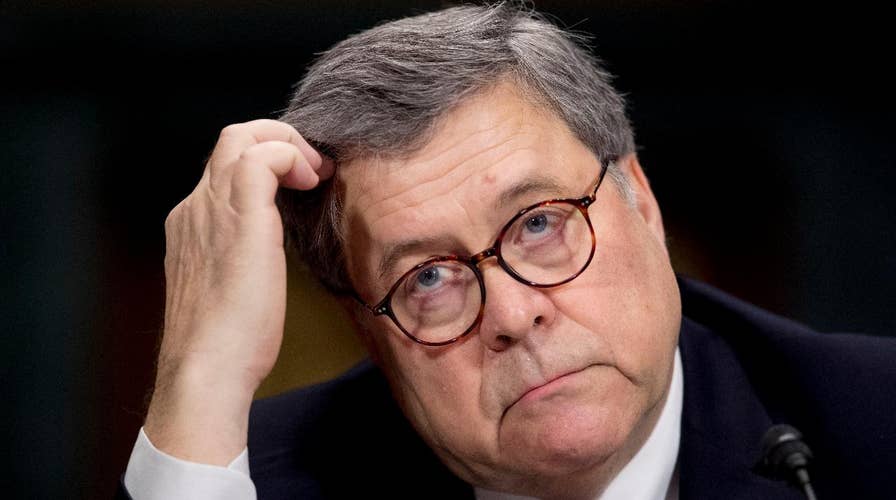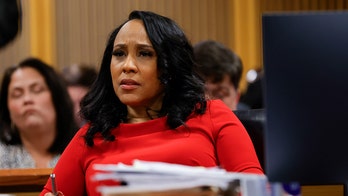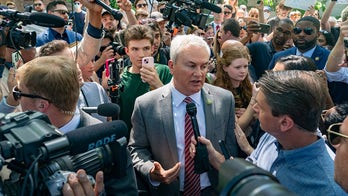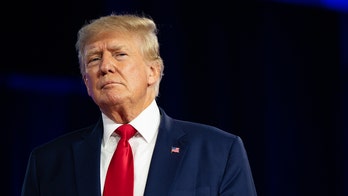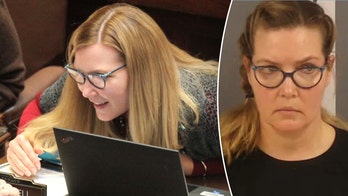Media knock Barr's probe of FBI
Attorney general asks prosecutor to examine 2016 surveillance.
Attorney General Bill Barr said in an interview that aired Friday that he does not agree with "a lot of the legal analysis" inside Special Counsel Robert Mueller’s report and said it does “not reflect the views” of the Justice Department, the latest break between President Trump's attorney general and leader of the Russia probe.
In a sit-down interview with CBS News’ Jan Crawford, Barr was asked about the handling of his initial four-page summary of Mueller’s report, which he shared in late March. Barr and former Deputy Attorney General Rod Rosenstein said they determined that the evidence found in Mueller’s probe was not sufficient to charge the president with an obstruction of justice offense.
BARR SAYS HE 'PERSONALLY FELT' MUELLER COULD HAVE REACHED DECISION ON OBSTRUCTION
“We didn’t agree with the legal analysis, a lot of the legal analysis in the report,” Barr said. “It did not reflect the views of the department. It was the viewpoint of a particular lawyer or lawyers, so we applied what we saw was the right law.”
Speaking of Mueller's findings on obstruction, Barr said, “The bottom line was that Bob Mueller identified some episodes. He did not reach a conclusion. He provided both sides of the issue. And his conclusion was he was not exonerating the president, but wasn’t finding a crime either.”
Barr’s comments come after Mueller made a rare public appearance this week—his first and only in his tenure as special counsel. Mueller announced that the investigation was officially complete and that he was resigning from the Justice Department to return to private life.
Mueller detailed the findings of the report, stating that there was “no evidence” of a conspiracy related to Russia colluding with members of the Trump campaign during the 2016 presidential election, and explained his investigatory decisions related to his inquiry on whether the president obstructed justice.
“If we had had confidence that the president clearly did not commit a crime, we would have said that,” Mueller said Wednesday at the Justice Department. “We did not determine whether the president did commit a crime.”
Mueller explained the longstanding Justice Department policy, which states that a sitting president cannot be charged with a crime, and added that “charging the president with a crime was not an option we could consider.”
“We concluded that we would not reach a determination one way or the other about whether the president committed a crime,” Mueller said. “That is the office’s final position.”
But Barr told CBS News that he felt Mueller could have come to an official conclusion on the inquiry.
“I personally felt he could’ve reached a decision,” Barr said. “The opinion says you cannot indict a president while he is in office, but he could’ve reached a decision whether it was criminal activity, but he had his reasons for not doing it, which he explained.”
MUELLER SAYS CHARGING TRUMP WITH A CRIME WAS 'NOT AN OPTION' IN RUSSIA PROBE
Barr added: “I am not going to argue about those reasons but when he didn’t make a decision, the Deputy Attorney General Rod Rosenstein and I felt it was necessary for us as heads of the Department to reach that decision.”
This week, Mueller also said that while the Office of Legal Counsel (OLC) opinion blocks a president from indictment while in office, “the Constitution requires a process other than the criminal justice system to formally accuse the president of wrongdoing.” Some on the left took that as a green light to ramp up talks about impeachment proceedings against the president.
When asked if he thought Mueller was suggesting Congress could be the “venue” to hold the president accountable, Barr said he was “not sure.”
“Well, I’m not sure what he was suggesting,” Barr said in in the interview. “You know, the Department of Justice doesn’t use our powers of investigating crime as an adjunct to Congress.”
Barr also responded to Mueller’s announcement this week that, despite negotiations with top congressional committees, he does not plan to testify in public or private.
“It’s up to Bob, but I think the line he’s drawing, which is he’s going to stick to what’s in the report, is the proper line for any department official,” Barr said.
TRUMP BLASTS MUELLER AS 'HIGHLY CONFLICTED,' CALLS IMPEACHMENT A DIRTY, FILTHY, DISGUSTING WORD'
Earlier this month, the House Judiciary Committee voted to hold Barr in contempt for defying the panel’s subpoena requiring that he turn over an unredacted version of Mueller’s report, as well as underlying documents and evidence. In turn, the president asserted executive privilege over the materials in a bid to protect those files from release.
Despite the criticism of Barr over his handling of the report, Mueller defended him on Wednesday, saying that he does "not question the attorney general's good faith" in the decision to release the report in full, with redactions, to the public and Congress. Mueller said that he had suggested only "portions of the report be released," and said that he "appreciated" Barr's decision.
Meanwhile, Barr, also has fallen under intense scrutiny over his testimony last month before a congressional committee when he said he believed that "spying did occur" on the Trump campaign during the 2016 presidential election.
Barr, since, has appointed U.S. attorney from Connecticut John Durham to investigate the origins of the Russia investigation.
When asked about his use of the word "spying," Barr said: "I mean, I guess it's become a dirty word somehow. It never has been for me. I think there's nothing wrong with spying. The question is always whether it's authorized by law."
He added: "It's part of the craziness of the modern day, that if the president uses a word, then all of a sudden it becomes off bounds. It's a perfectly good English word and I'll continue to use it."
Barr's review of the origins of the original Russia investigation at the FBI comes amid several other investigations--specifically led by the Justice Department Inspector General Michael Horowitz. Horowitz, for over a year, has been investigating alleged misconduct related to the Foreign Intelligence Surveillance Act (FISA) warrants-- a probe that is expected to be complete by late next month. Durham, though, is cooperating with Durham, FBI Director Christopher Wray and CIA Director Gina Haspel.
But last week, the president signed a memo to declassify documents related to the 2016 surveillance of Trump campaign officials. It is unclear what the documents contain, or when they will be declassified.
"I had a lot of questions about what was going on, and I assumed I'd get answers when I went in, and I have not gotten answers that are at all satisfactory and in fact, probably have more questions," Barr told CBS News. "Some of the facts that I've learned don't hang together with the official explanations of what happened."
He added: "That's all I really will say. Things are just not...jibing."
